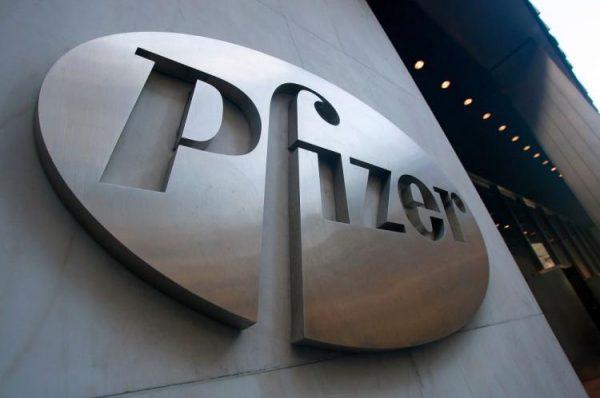
Share To Alt-Tech
This article was originally published on Epoch Times - World. You can read the original article HERE
Previous guidance suggested the talking therapy CBT could be offered as an alternative to hormone replacement for women seeking relief from menopause symptoms.
There has been a surge in the number of women taking HRT in recent years, with figures showing a 22 percent increase in the number of prescriptions issued in 2023–24 compared to the previous year, with some 13 million items prescribed to an estimated 2.6 million people.
The National Institute for Health and Care Excellence (NICE) said “HRT is the the preferred, recommended approach” for managing symptoms such as hot flushes, insomnia, and low mood, and should be offered by GPs in discussion with patients about the risks and benefits.
Draft guidance issued by NICE last November suggested cognitive behavioural therapy (CBT)—a talking therapy designed to help people manage their problems by changing the way they think and behave—could be offered as an alternative or alongside HRT.
However, NICE has now rewritten this guidance to stress that HRT should be the first-line treatment, with CBT an option for women in addition to HRT, for those who either cannot or do not want to take it because they prefer a more natural approach without the potential risks.
The guidelines say that HRT should not be given to women with a significant family history of blood clots as artificial hormones can increase the risk of clotting.
The guidelines also state that “breast cancer risk increases with combined HRT and the increase rises: with duration of use; is higher in people currently taking HRT than in those who have taken it in the past,” and the elevated risk of breast cancer persists for 10 years after stopping the treatment.
However, many women say that HRT has vastly improved their quality of life and given them relief from symptoms which can include hot flushes, difficulty sleeping, loss of sex drive, and weight gain.
Life Expectancy Unaffected
The updated guidelines emphasise that HRT has not been found to affect overall life expectancy within the existing body of research.Professor Jonathan Benger, chief medical officer at NICE, told a briefing that “HRT is our recommended first-line treatment for vasomotor symptoms [hot flushes and night sweats], and we recommend that that should be offered to women, providing that it meets their needs, and following an informed discussion.
“We have revised the guideline to be really clear that CBT is an adjunct, it’s an add-on therapy, and it can help [women] manage the symptoms … in addition to HRT, or some women may choose not to take HRT, or they may not be able to take HRT, and therefore that’s where CBT can be useful.”
He added that in suggesting CBT as an alternative or an additional treatment, the body was not suggesting that menopausal symptoms were not real or were merely psychological.

A Pfizer sign outside of their headquarters in a file photo. Mario Tama/Getty Images
‘Controversial’ CBT Recommendation
Marie Anne Ledingham, consultant clinical adviser at NICE, said the original draft wording on CBT had proved “controversial” and a lot of time had been spent “reviewing the wording and the placement of CBT within the guideline and how it ranked in relation to the other recommendations.”Also on Thursday, NICE published a “discussion aid” for GPs and patients, including data on how HRT has been found to slightly increase the risk of some health conditions such as breast cancer and blood clots. The treatment is also claimed to lower the risk of osteoporosis.
Berger said the discussion aid will “help clinicians offer personalised advice” to women considering starting HRT.
“Women need to feel confident that they will be offered advice and options that meet their needs, and that they will be supported to make the choices that are right for them,” he said.
HRT products are mainly sold by smaller drugmakers specialising in women’s health, rather than by the pharmaceutical giants, with the exception of Pfizer. Manufacturing takes place almost entirely outside the UK, meaning importers are wholly reliant on international supply chains, which led to a shortage during the COVID-19 lockdown era.
Medical Ghostwriting
Wyeth, now a subsidiary of Pfizer, was a pharmaceutical company that marketed HRT products and was involved in a major medical scandal in which it was found to have paid for false reviews which both overstated the benefits and downplayed the risks of the drugs.Between 1998 and 2005, Wyeth had 26 papers promoting its HRT products published in scientific journals, including papers which downplayed the elevated breast cancer risk, made unsubstantiated claims of cardiovascular benefits, and promoted off-label and unproven uses such as the prevention of dementia, Parkinson’s disease, vision problems, and wrinkles.
When the scandal was revealed in 2002, the stock prices for the pharmaceutical industry plummeted, and huge numbers of women stopped using HRT.
Pfizer acquired Wyeth in a $68 billion deal, and continues to market Premarin and Prempro, which remain best-selling HRT medications, alongside two other popular HRT products, Provera and Depo-Provera.
This article was originally published by Epoch Times - World. We only curate news from sources that align with the core values of our intended conservative audience. If you like the news you read here we encourage you to utilize the original sources for even more great news and opinions you can trust!












Comments